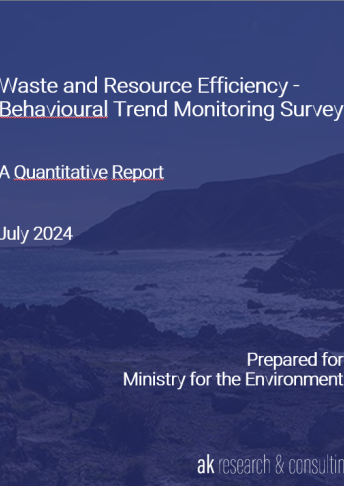In 2023 we funded a three-year research project to understand and track changes in people’s attitudes, awareness and behaviours around waste minimisation.
Each year, the research will focus on measuring and comparing data from relevant policy areas within our work programme.
In 2023 we funded a three-year research project to understand and track changes in people’s attitudes, awareness and behaviours around waste minimisation.
Each year, the research will focus on measuring and comparing data from relevant policy areas within our work programme.
In 2024 the focus was on:
· changes to kerbside recycling
· recycling and reducing behaviours
· repairing
· food waste
· single-use plastic bags
· communications on reducing waste.
What we found:
- Nearly all (96 per cent) claimed to recycle, mostly through council-run kerbside recycling.
- There was a 4 per cent increase in mostly correctly identifying whether an item was recyclable or not.
- Around a third (36 per cent), claimed to ‘always or often’ try to repair broken items rather than buy a new item.
- Most households continued to claim that they tried to reduce food waste in many ways. The highest remained ‘eating leftovers’ (96 per cent, no change), ‘thinking about portion size’ (93 per cent, up 1 per cent), ‘using a shopping list’ (91 per cent, down 1 per cent), and ‘planning meals in advance’ (91 per cent, down 1 per cent).
- The use of single-use produce bags declined this year (35 per cent, down 5 per cent), while there was an increase in those using a reuseable shopping bag (40 per cent, up 6 per cent) and using a reuseable produce bag (39 per cent, up 7per cent).
- Likely driven by recent food waste reduction initiatives, recall increased significantly for information about ‘reducing your food waste’ (45 per cent, up 9 per cent) and having an ‘eat me first’ shelf in your fridge (17 per cent, up 9 per cent).
Related publication:
